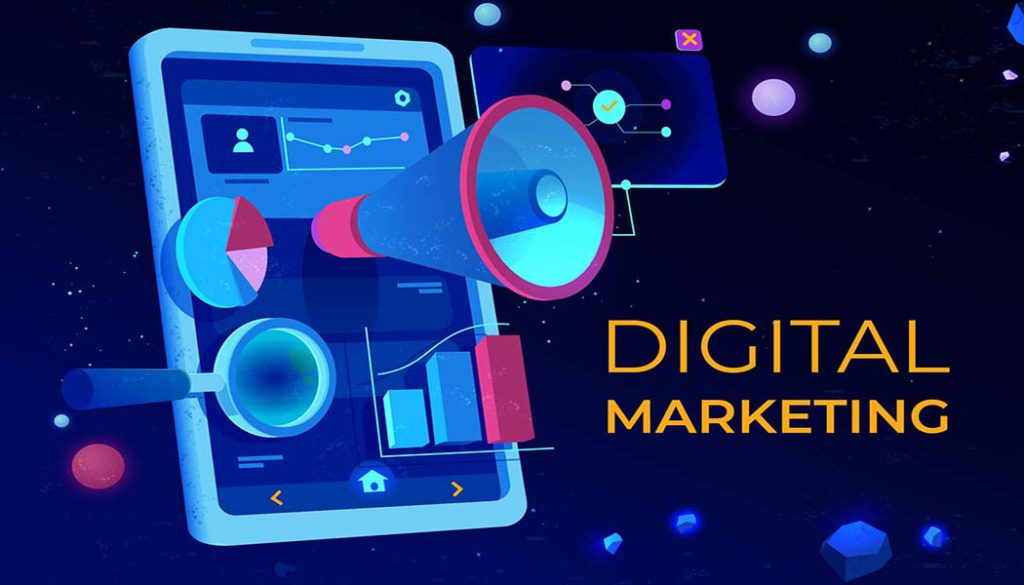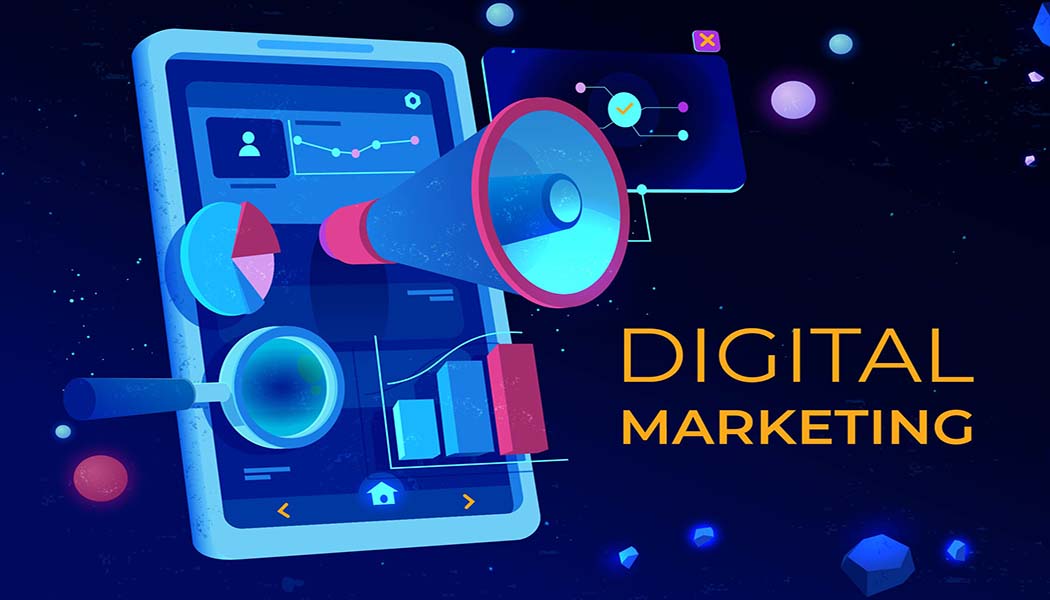Digital Marketing: Transforming Business in the Digital Age
In today’s fast-paced, technology-driven world, digital marketing has become an essential strategy for businesses looking to thrive and maintain a competitive edge. As traditional marketing techniques, such as print advertisements and TV commercials, gradually lose their effectiveness, digital marketing offers a more dynamic, targeted, and cost-efficient alternative. This essay explores the key components, benefits, and challenges of digital marketing, shedding light on its transformative impact on modern businesses.

Key Components of Digital Marketing
Digital marketing encompasses a broad range of strategies that leverage the power of the internet and digital technologies to connect businesses with consumers. Among the most prominent components are:
1. Search Engine Optimization (SEO) – SEO is the practice of optimizing website content so that it ranks higher in search engine results, such as Google. A strong SEO strategy increases visibility, drives organic traffic, and ensures that businesses appear when potential customers search for relevant products or services.
2. Social Media Marketing – Social media platforms like Facebook, Instagram, Twitter, and LinkedIn offer businesses the opportunity to engage with customers directly, build brand awareness, and create viral content. Social media marketing is highly targeted, allowing businesses to reach specific demographics based on interests, behaviors, and geographic locations.
3. Email Marketing – Email marketing remains one of the most effective forms of direct communication with customers. By sending personalized, relevant content to subscribers, businesses can nurture leads, build customer loyalty, and increase sales.
4. Pay-Per-Click Advertising (PPC) – PPC campaigns, such as Google Ads, allow businesses to place advertisements on search engines or other digital platforms. Advertisers only pay when a user clicks on the ad, making it a cost-effective way to drive targeted traffic to a website.
5. Content Marketing – Content marketing focuses on creating valuable, engaging content—such as blog posts, videos, infographics, and podcasts—to attract and inform potential customers. By offering informative content, businesses build trust and credibility, which in turn encourages customer engagement and conversions.
6. Affiliate and Influencer Marketing – Affiliate marketing involves partnering with third-party influencers or publishers who promote a company’s products or services for a commission. Influencer marketing, a subset of affiliate marketing, capitalizes on the popularity of individuals with significant online followings to drive brand awareness and sales.
Benefits of Digital Marketing
The primary appeal of digital marketing lies in its ability to reach vast audiences quickly and cost-effectively. One of the biggest advantages is the level of precision it offers. Through data-driven insights, businesses can target specific audiences based on demographics, interests, browsing behavior, and past interactions. This ability to segment audiences ensures that marketing efforts are more relevant and effective.
Another key benefit is the measurability of digital campaigns. Unlike traditional marketing, where tracking the return on investment (ROI) can be challenging, digital marketing allows businesses to analyze real-time data, assess campaign performance, and adjust strategies on the fly. Tools like Google Analytics and social media insights provide in-depth metrics, helping marketers make informed decisions.
Challenges in Digital Marketing
Despite its numerous benefits, digital marketing presents several challenges. One of the main obstacles is the highly competitive nature of the digital landscape. With millions of businesses vying for consumer attention online, standing out in a crowded market can be difficult. Additionally, digital marketing requires constant adaptation to evolving technologies and platforms. Staying current with trends, algorithm changes, and new tools can be time-consuming and resource-intensive.
Moreover, the issue of privacy and data security is an ongoing concern. With consumers becoming more aware of how their data is used, businesses must ensure that their marketing practices comply with data protection laws, such as the General Data Protection Regulation (GDPR), to maintain trust and avoid legal ramifications.
Digital marketing has revolutionized the way businesses connect with consumers. It offers a wide range of tools and strategies to build brand awareness, drive sales, and foster customer loyalty. Although challenges such as competition and data privacy concerns exist, the benefits of digital marketing are undeniable. In an increasingly digital world, businesses that embrace these strategies are better positioned to succeed and grow in the global marketplace. As technology continues to evolve, the future of digital marketing will undoubtedly bring even more innovative ways to engage and connect with audiences.


